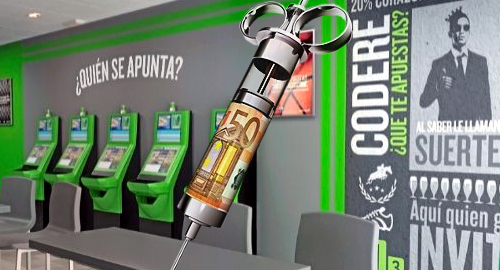 Spanish gambling operator Codere is seeking emergency refinancing of its debt as the COVID-19 pandemic puts a serious crimp in its cashflow.
Spanish gambling operator Codere is seeking emergency refinancing of its debt as the COVID-19 pandemic puts a serious crimp in its cashflow.
On Monday, Spanish media outlet El Confidencial reported that Codere had enlisted Bank of America to ensure the company had enough liquidity to ride out the impact of COVID-19. Codere has suffered the closure of its land-based gaming venues while its online gambling division is struggling due to the mass cancellation of sports and racing events.
Codere has seen the value of its €900m bond issue tumble from €0.90 to €0.35 in a little more than one month, leading Moody’s to downgrade the bonds to junk status and raising concerns that the struggling firm is once again teetering on the brink of bankruptcy.
Codere was forced to furlough nearly 70% of its Spanish workforce in late-March following the government’s order to close all non-essential retail operations to minimize further COVID-19 transmission.
Codere’s retail operations in other markets, including Argentina, Italy, Mexico and Uruguay, are facing similar restrictions that its comparatively tiny online gambling division can’t hope to offset, particularly given the present dearth of sports events.
El Confidencial quoted sources saying Codere had enough cash on hand to keep the business afloat for four months should there be no restart of retail operations. Absent any significant retail revival by then and Codere will have to find fresh sugar daddies.
Codere’s previous rescuers, the Silver Point, Abrams Capital and M&G hedge funds, are reportedly willing to invest a further €100m to keep Codere afloat, partly because there’s no way for them to sell their stakes in the current climate.
Codere’s 2019 report reflected the problems the company was facing prior to COVID-19, including the sharp devaluation of the Argentine peso and the discovery of some accounting hanky-panky in its Latin American operations, particularly in Mexico, which forced the company to secure new credit lines to shore up its Mexican operations.





